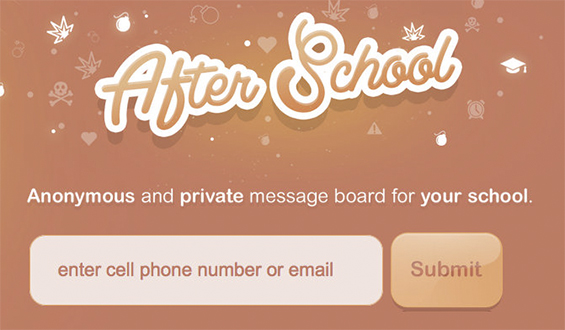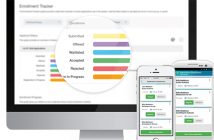
Millions of teenagers across the country are using a new application on their smartphones to divulge their deepest, darkest secrets anonymously – and their parents have no idea they are doing it.
The After School app has become increasingly popular throughout high schools this year, with its creators boasting being used at over 22,300 high schools so far. Parents and administrators are largely unaware of its usage because the app is designed to only be accessed by teenagers.
Although the app was created in an effort to offer teenagers a safe place to discuss sensitive issues without the need to use their real names, it has in some cases become a place to bully others, make rude remarks, or even participate in illegal activity. The app allows users to post comments and images to message boards individualized for each high school without identifying the poster, much in the same way that the popular app on college campuses, YikYak, operates.
“At first it was people saying nice things and complimenting others, and then it turned into bullying,” said Mya Bianchi, a 15-year-old who attends Ionia High School in central Michigan.
Mya was the victim of cyberbullying after another user posted her phone number on the app and urging other users to call for photos. The user ended the post with emoticons of winking face, a camera, and a bikini. Mya received so many harassing phone calls that she had to change her number. According to her mother, Carrie Bunting, Mya was “freaked out” by the incident, writes Moriah Balingit for The Washington Post.
Users are required to verify the high school they attend through their Facebook page. Each message board is then limited to individual high schools. In order for a parent or other adult to use the app, they would need to lie about attending a high school on their Facebook page. Even doing this may not work as the app uses an algorithm to spot potential users who are lying about being in high school and then block them.
While the app’s creators will not say exactly how many students are currently using the app, they did say the number was somewhere between 2 and 10 million. The Education Department reports close to 55 million K-12 students across the country, with about 15 million of those students in grades 9 through 12.
Cory Levy, 24, one of the app’s founders, said After School gives teens a chance to “express themselves without worrying about any backlash or any repercussions.”
Levy went on to say the app was designed in order to allow teenagers the opportunity to talk about issues such as how to come out as gay to their parents in an anonymous setting.
“There’s a need for people to be able to communicate in a place where they wouldn’t be judged, where they could speak freely,” said Michael Callahan, 32, who created the app with Levy.
However, there have been complaints about cyberbullying and anonymous threats since its initial launch in November 2014. Only one month later, a 17-year-old in Ortonville, Michigan wrote on the app that he would rather bring his gun to school “and practice on my classmates” than take it to the shooting range. The student pleaded guilty to making a terrorist threat and was sentenced to 90 days in prison.
After online petitions were created looking for the removal of the app, Apple pulled it from their app store. A new version was released in April that included a number of safety features, including a fast-response system that notifies authorities if a threat is discovered.




